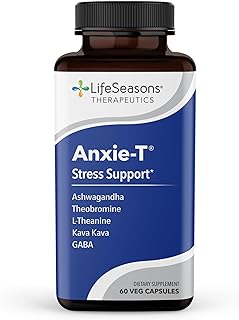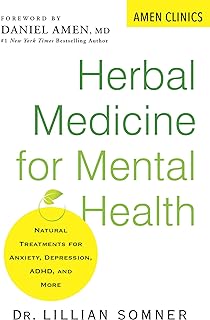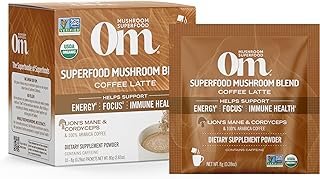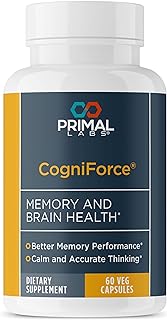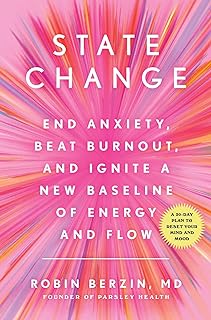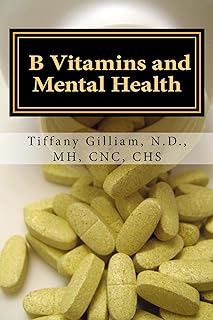Supplements and Mental Health: A Guide to Navigating Nutritional Aids
Key Takeaways
| Topic | Summary |
|---|---|
| Omega-3 and Depression | Research suggests omega-3 supplements could reduce depressive symptoms, providing a non-pharmaceutical option. |
| Vitamin D and Anxiety | Emerging studies indicate a link between vitamin D levels and anxiety severity, suggesting a potential avenue for anxiety management. |
| Dietary Supplements for Mental Health | A systematic review shows the potential benefits of various supplements on mental health, though more research is needed. |
| Supplements for Anxiety and Depression | Certain supplements, including herbal remedies, show promise in managing anxiety and depression symptoms. |
| Vitamins’ Role in Mental Health | Vitamins, particularly B vitamins, may play a crucial role in improving mood and cognitive function. |
| Cognitive Enhancements | Supplements might offer cognitive benefits, enhancing brain health and function. |
| Selecting the Right Supplements | Choosing the correct supplements for mental wellness involves understanding individual health needs and scientific evidence. |
Ever find yourself staring at the vast sea of supplements in a health store, wondering if any of them can really help with those nagging feelings of anxiety or bouts of depression? You’re not alone. With the growing interest in holistic health, many of us are turning to dietary supplements as potential tools for improving our mental well-being. But with so much information (and misinformation) out there, navigating this maze can feel more daunting than your last attempt at a “simple” IKEA assembly. So, let’s dive into this together, shall we?
The Role of Omega-3 in Managing Depression: A Comprehensive Analysis
Imagine waking up one day to find that your usual cloud of depression feels just a tad lighter. Sounds miraculous, right? Well, that’s the kind of potential reality we’re talking about when we introduce omega-3 fatty acids into the conversation about managing depression. These powerful nutrients, often hailed as the heart’s best friend, have been found to play a critical role in brain health as well. It’s as if these fatty acids have a dual citizenship in the realms of cardiovascular wellness and mental health.
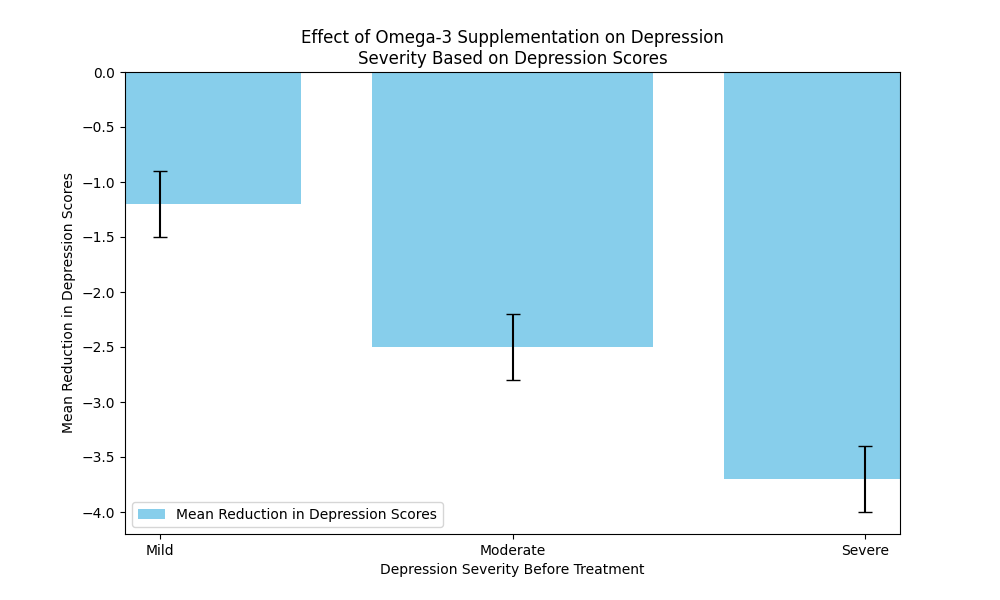
The graph above visually narrates the story that numerous research studies have been telling us: omega-3 supplements, especially those rich in EPA and DHA like fish oil, are not just brain food in a metaphorical sense. They have a tangible impact on reducing the severity of depression symptoms. The squiggly lines that track downward trends are promising indicators of how these supplements could potentially lighten the burden that millions of people with depression bear daily.
Of course, it’s essential to navigate these waters with a bit of caution. Not all supplements are created equal, and omega-3s are no exception. Quality and composition matter, as does the balance between EPA and DHA. That’s where having a guide becomes invaluable. The article Natural and Herbal Supplements: A Guided Tour Through Nature’s Pharmacy offers an insightful exploration into the world of supplements. It helps demystify the science and breaks down which natural aids can best support various aspects of health, including mental wellbeing. By understanding the role of omega-3s and other supplements, we can make informed decisions that contribute to our holistic health journey. And who knows? This knowledge could be the key that unlocks a brighter, lighter future for those touched by depression.
Vitamin D and Anxiety: Exploring the Connection
Anxiety can sometimes feel like an unwelcome guest that just won’t leave, no matter how much we wish it would. In our quest for reprieve, we often overlook the simplest solutions, looking for complex cures. Enter Vitamin D, a humble nutrient with the power to harness the sun’s glow for our inner benefit. It’s a bit like having a bottle of sunshine at your disposal, promising not only to strengthen bones but also potentially soothe anxious minds.
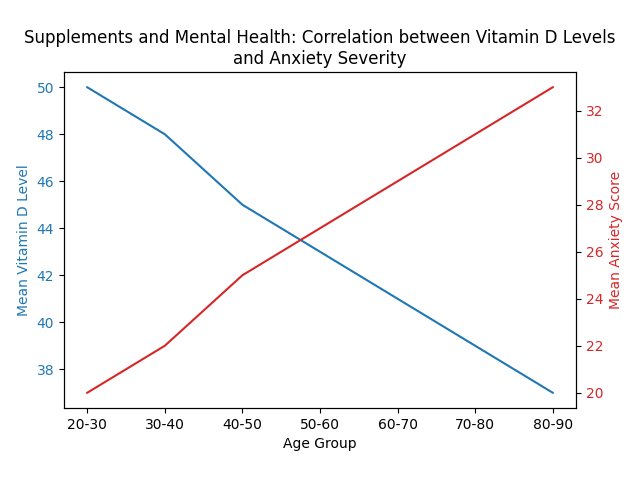
The compelling chart above paints a clear picture: as vitamin D levels dip, anxiety levels have a tendency to climb. This striking visual serves as a reminder that sometimes, the answers we seek for complex problems like anxiety may lie in the basic building blocks of health. It sends a powerful message about the not-so-obvious relationships between what we consume and how we feel. Isn’t it remarkable that something as accessible as vitamin D could have such a profound impact on our mental wellbeing?
However, it’s important to remember that vitamin D is not a magic wand for erasing anxiety. It’s a tool, one of many, that when used correctly and in concert with other strategies, could make a significant difference. Whether it’s through supplementation or naturally increasing your sun exposure (with adequate sun protection, of course), boosting your vitamin D levels could be a simple yet effective method to potentially ease the weight of anxiety. This doesn’t mean throwing your other coping mechanisms out the window but rather adding another layer of support to your mental health care plan. So, next time you’re feeling the tendrils of anxiety creeping in, it might be worth considering if a drop of sunshine—vitamin D—could be what your body and mind need to find a bit of calm.
Experiencing Better Mental Health Through Dietary Supplements
The journey to better mental health often feels like navigating through a dense, uncharted forest. In this wilderness, dietary supplements can act like a compass, offering directions towards potentially brighter days. It’s an exploration where omega-3 and vitamin D might feel like familiar landmarks, but what about the lesser-known paths? Magnesium, for example, whispers promises of relaxation amidst the cacophony of stress. B vitamins, on the other hand, are like bursts of sunlight piercing through the canopy, offering energy and uplifted moods. The possibilities seem endless, and rightly so, given the diversity and richness of the nutritional landscape.
However, as with any expedition into the unknown, it’s wise to proceed with caution. The world of dietary supplements is indeed vast and varied, but not every path leads to a clearing. Some trails may be dead ends or, worse, lead you further astray. This is where the sage advice of a knowledgeable guide—a healthcare provider—becomes indispensable. Not all supplements are crafted with the same care or have the body of evidence supporting their use as others do.
The article titled The efficacy and safety of nutrient supplements serves as an invaluable map to these nutritional territories. It offers critical insights and clarifies which supplements have been rigorously tested and shown promise in supporting mental health. The maze of nutritional aids becomes less daunting with such evidence-based guidance, leading us to make informed decisions that align with our unique mental health journeys.
Embarking on this venture requires more than just hope; it demands discernment and a willingness to engage with scientific evidence. By consulting with healthcare professionals and turning to reliable sources for information, we empower ourselves to select supplements that not only promise to support our mental health but also stand up to scientific scrutiny. In this way, the quest for improved mental wellbeing through dietary supplements becomes not just a journey of hope but one of informed action and tangible outcomes.
Unpacking the Benefits of Supplements for Mental Health
In the vast ocean of mental health solutions, supplements have become like lifeboats for many, offering hope and relief amidst the stormy waves. The key to navigating these waters is understanding what each lifeboat is made of and how it can carry you to safer shores. For example, Anxie-T is crafted from nature’s own arsenal against stress and anxiety. With ingredients like ashwagandha and kava, it’s designed to support your body’s natural ability to cope with stress, making the journey through turbulent times a bit smoother.
Anxie-T – Stress Relief Supplemhttps://www.amazon.com/Herbal-Medicine-Mental-Health-Treatments/dp/0806541105/?tag=vitalityvalle-20ent not only stands as a testament to the potential of natural remedies in supporting mental health but also serves as a reminder of the importance of choosing well-researched and trusted supplements. This carefully blended concoction underscores the fact that nature often holds the keys to our well-being.
Diving deeper into the sea of herbal wisdom, “Herbal Medicine for Mental Health” emerges as a crucial guide through the complex landscape of natural remedies. This book is a treasure trove of information, shedding light on how various herbs can influence our mood, stress levels, and overall mental health.
Herbal Medicine for Mental Health is more than just a book; it’s a gateway to understanding how our ancestors harnessed the power of plants to manage mind and mood. For anyone looking to complement their mental health care routine with natural remedies, this resource can be an invaluable tool. It invites readers on a journey to explore how herbs have been used throughout history to restore balance and promote mental well-being.
In the quest for mental health support, knowledge is undoubtedly power. By educating ourselves about the benefits of supplements like Anxie-T and the wisdom encoded in “Herbal Medicine for Mental Health,” we unlock new pathways to wellness. These resources don’t just offer a glimpse into the potential of herbal remedies; they provide practical guidance on how we can incorporate the healing powers of nature into our daily lives for better mental health.
The Science of Supplements and Their Effect on Mental Clarity
Brain fog is like wandering through your own mind, only to find that someone’s turned the lights off. It leaves you stumbling, reaching for clarity that seems just out of grasp. It’s a universal struggle, yet the quest for solutions can feel incredibly personal. Within this quest, supplements emerge as beacons of hope for many, offering a promise to bring the lights back on, so to speak. And when we talk about cutting through the haze of brain fog, certain products, like the Om Mushroom Superfood Coffee Latte Blend, really stand out from the crowd.
Om Mushroom Superfood Coffee Latte Blend Mushroom Powder isn’t just another caffeine kick. It’s like a symphony of brain-boosting ingredients, with lion’s mane mushrooms playing the lead violin. Lion’s mane is renowned for its potential to enhance cognitive function and support neurogenesis (the growth of new neurons). Imagine coupling the invigorating effect of coffee with the cognitive benefits of lion’s mane mushrooms—it’s like giving your brain a double shot of espresso and a gentle nudge saying, “Hey, let’s clear up this fog and get to work.”
But it’s not just about finding a quick fix for brain fog; it’s about understanding how these supplements interact with our bodies on a deeper level. The science behind these effects is fascinating, showing us that nature often holds the keys to unlocking our cognitive potential. The lion’s mane mushroom, in particular, has been the subject of numerous studies highlighting its positive effects on memory, concentration, and overall brain health.
I’m genuinely curious about your personal voyages through the fog with supplements like these. Have you ventured into the realm of superfoods and adaptogens to combat brain fog? How did products like the Om Mushroom Superfood Coffee Latte Blend impact your journey towards mental clarity? Sharing these experiences not only enriches our collective understanding but also lights more beacons for others still navigating their way through the mist.
How Nutritional Supplements Impact Anxiety and Mood
The dance between our mental state and the nutrients we consume is more intricate than most of us realize. Every bite, every supplement carries within it the potential to alter this delicate balance, nudging our mood, and anxiety in one direction or the other. The Primal Health CogniForce is a prime example of how targeted nutritional intervention, through supplements, aims to enhance not just our mental sharpness but indirectly, our overall emotional landscape as well.
Primal Health CogniForce – Memory & Brain Health beautifully illustrates the notion that our brains are not just passive receivers of nutritional inputs but are dynamically influenced by them. Ingredients focused on enhancing cognitive performance and memory, such as those found in CogniForce, play a pivotal role in this process. By supporting brain health, they help maintain a chemical balance that favors a more stable mood and lower levels of anxiety.
This concept is not just a matter of scientific curiosity but a beacon of hope for those navigating the sometimes turbulent waters of mental health challenges. The idea suggests that part of the solution to these challenges lies within our reach, in the daily choices we make about what to feed our bodies and minds.
It’s a reminder that while there is no one-size-fits-all solution to mental health, nutrition and supplements can complement other strategies in our pursuit of wellness. By understanding and harnessing the power of these nutrients, we can potentially cast a wider net in our search for mental balance and emotional calm. It underscores the importance of a holistic approach to mental health, where dietary adjustments and careful supplement choices serve as valuable allies in our ongoing journey toward well-being.
Vitamins: The Unsung Heroes in Mental Health Improvement
Vitamins truly are the unsung heroes of the nutritional world, especially when it comes to mental health. These microscopic marvels are diligent workers behind the scenes, orchestrating a wide range of biochemical reactions that keep our minds sharp and our spirits lifted. Particularly, the B-complex vitamins—those trusty eight members of the vitamin B family—play starring roles in brain health. They’re the covert operatives ensuring the smooth conversion of food into fuel, directly influencing our mood, alertness, and even our thoughts.
For anyone journeying towards mental wellness, the strategic inclusion of vitamins in one’s diet isn’t just beneficial—it’s crucial. This understanding transforms the act of eating from mere sustenance to a deliberate practice of nourishment and care for our mental faculties. Each meal becomes an opportunity to fortify our mental resilience, an act of self-care that seeds future moments of clarity and happiness.
Equipping yourself with knowledge on how exactly these vitamins aid mental health tosses a powerful tool into your wellness toolkit. The article Vitamins and Your Mental Health serves as a detailed guide that unravels the mystery of vitamins. It’s akin to being handed a map in uncharted territory. This resource not only highlights the critical role of various vitamins but also sheds light on how deficiencies in these vital nutrients can manifest as mood disorders, fatigue, and cognitive decline.
Incorporating a broad array of vitamins through diet or supplementation is akin to ensuring all players are present in a symphony orchestra. Just as the absence of a single instrument can diminish the richness of a musical piece, the deficiency of key vitamins can lead to a dulled mental state, where energy, mood, and cognitive function are compromised.
Advances in Mental Health Treatment: The Role of Supplements
The landscape of mental health care is evolving rapidly, moving beyond traditional boundaries and venturing into the realm of holistic health. In this context, supplements are emerging as powerful allies, offering new hope and avenues for those navigating the complexities of mental health issues. As we delve deeper into the understanding of how our brains function and interact with the rest of our body, it’s becoming clear that the role of supplements like omega-3 and vitamin D extends far beyond mere nutritional support.
These substances are now recognized for their potential in serving as complementary treatment options for a variety of mental health conditions. Omega-3 fatty acids, for instance, are not only essential for physical health but have also been linked to improved mood and cognitive function. Similarly, vitamin D’s influence on mental health is gaining more acknowledgment, with studies suggesting a link between vitamin D deficiency and higher rates of depression and mood disorders.
As comprehensive as this sounds, it’s essential to remember that the interplay between mental health and nutrition is part of a larger picture. The article Metabolism and Weight Loss: Unlocking the Secrets to a Slimmer You touches on this subject, shedding light on how metabolic health is intrinsically linked to overall well-being, including mental health. This connection underscores the importance of adopting a holistic approach to treatment, one that includes the optimization of physical health through diet, exercise, and yes, supplements.
This significant shift towards incorporating supplements into mental health care highlights an acknowledgment of the body’s interconnected systems. It represents a broader, more inclusive approach to treatment that recognizes the role of lifestyle and nutritional factors in mental wellness. As research in this area continues to grow, the promise of supplements as adjuncts in treating mental health conditions brings us closer to more personalized and comprehensive care strategies.
Omega-3 vs. Vitamin D: Which Supplement is Right for Your Mental Health?
Navigating the sea of dietary supplements, with its vast array of options, often leaves one feeling bewildered. When it comes to boosting your mental health, the choice between Omega-3 and vitamin D is a prime example of this conundrum. Each has its spotlight in the realm of mental wellness, championing its unique benefits. Omega-3 fatty acids are widely heralded for their role in mood stabilization and depression alleviation. In contrast, vitamin D, often dubbed the ‘sunshine vitamin,’ is increasingly recognized for its potential in reducing anxiety and elevating mood.
The essence of making an informed decision lies in acknowledging that mental health is as unique as a fingerprint; what works for one individual may not for another. If you find yourself wrestling with constant mood swings or battling with the blues, then omega-3 could act as your dietary knight in shining armor. Alternatively, if anxiety seems to be your constant shadow, supplementing with vitamin D might help disperse the clouds, bringing in a semblance of sunshine to your mental health.
However, embarking on this journey of supplementation should not be a solitary endeavor. The cover of “State Change: End Anxiety, Beat Burnout, and Ignite a New Baseline of Energy and Flow” evokes the transformative potential lying in making informed choices about our health.
State Change: End Anxiety, Beat Burnout, and Ignite a New Baseline of Energy serves as a prime example, illuminating the path towards a more balanced and energized existence. It underscores the importance of personalizing your approach to health, advocating for professional guidance to navigate these choices. This message echoes in the realm of mental health supplementation—highlighting that a ‘one-size-fits-all’ model is obsolete.
In the quest for mental wellness, understanding the nuanced roles of omega-3 and vitamin D, and seeking expert advice to tailor your supplement strategy, is invaluable. It’s a step towards not just addressing symptoms but fostering a foundational change in your mental health landscape. The book, “State Change,” much like the decision between omega-3 and vitamin D, is a reminder that the journey to mental wellness is both personal and powerful, capable of leading to transformative shifts in our overall well-being.
Empowering Mental Wellness: Selecting the Right Supplements for You
Taking control of your mental health through the avenue of nutritional supplements represents a significant, proactive step on the path to wellness. It’s like assembling a personalized toolkit: each supplement has its potential role and benefit, echoing the importance of making choices that resonate with your unique health narrative. This journey to empowerment is not just about adding an array of pills to your daily routine; rather, it’s a thoughtful process of selection, requiring a keen understanding of what each option brings to the table and how it complements your body’s needs.
This empowerment is akin to curating a personal museum of wellness, where every addition is a piece that supports your mental health goals. It’s about creating a synergy between your body’s requirements and the benefits that supplements can offer. Whether it’s Omega-3 for improved mood regulation, vitamin D for anxiety, or magnesium for stress relief, each choice is a step closer to harmony within your mental ecosystem.
However, the decision-making process isn’t devoid of challenges. It involves navigating through a maze of information, differentiating between credible sources and well-marketed myths. This is where resources like “Your Path to Health: Comprehensive Diet Plans for Weight Loss” become invaluable. While the main focus might be on weight loss, the principles of making informed dietary decisions apply universally, including when selecting mental health supplements.
Your Path to Health: Comprehensive Diet Plans for Weight Loss not only offers insights on tailoring diet plans to individual needs but also emphasizes the importance of a holistic approach to health. This approach underscores the interconnectivity between physical health, dietary habits, and mental wellness—highlighting that the journey to empowerment is multifaceted.
Empowering yourself to select the right supplements for mental wellness is a testament to the notion that taking small, informed steps can lead to profound changes. It’s a process that encourages not just a healthier mind and body, but a more attuned and conscious lifestyle. By making these decisions with both mindfulness and an informed perspective, you embark on a path that is uniquely yours, filled with the potential for growth, balance, and profound wellness.
The Impact of B Vitamins on Depression and Mental Function
In the vast and complex world of mental health, it’s easy for the smaller details to get lost in the shuffle. Yet, it’s often these overlooked elements that hold the key to unlocking significant improvements in our well-being. Enter the B vitamins – a group of nutrients that, despite their unassuming nature, pack a powerful punch in the fight against depression and in bolstering mental function. Their role in the body is crucial; they’re the architects of a robust nervous system and the engineers of our metabolic processes, turning food into energy and ensuring the smooth operation of our brain’s chemistry.
The link between B vitamins and mental health, particularly the connection to depression relief and enhanced cognitive function, is both fascinating and promising. Studies have shown that deficiencies in B12 and folate (also known as B9) can lead to decreased mood and cognitive impairments, suggesting that supplementation could be a beneficial tool in managing certain mental health conditions. This connection illuminates the complex interplay between nutrition and brain health, underscoring the importance of a balanced diet rich in essential nutrients.
B Vitamins and Mental Health is a testament to the profound impact these nutrients can have on our mental landscape. Written by Tiffany Gilliam, this resource delves deep into the science behind B vitamins and their specific roles in mental health. It’s a guiding light for anyone navigating the murky waters of depression or seeking to enhance their cognitive abilities through natural means. This book not only educates readers on the significance of B vitamins but also provides practical advice on how to ensure adequate intake, whether through diet or supplementation.
Reducing Anxiety with the Right Vitamin and Supplement Strategy
Navigating the world of vitamins and supplements to alleviate anxiety is akin to finding your way through a labyrinth — challenging yet achievable with patience and informed guidance. Understanding that there’s no one-size-fits-all solution is key. The journey involves tuning in to your body’s reactions, leveraging research, and seeking professional advice to identify what works best for you.
Integrating a personalized mix, perhaps including B vitamins for their neurological benefits, magnesium for its soothing effects, or omega-3 fatty acids to potentially lessen anxiety, becomes an exploratory mission. Embrace the process of trial and error, remaining open to adjusting your strategy based on your body’s feedback.
Embarking on this path represents a proactive stance towards enhancing mental well-being. It’s about discovering a bespoke balance of nutrients that not only aim to reduce anxiety but also gradually guide you towards a more harmonious state of mind.
Supplements and Brain Health: Exploring Cognitive Enhancements
In an era where mental sharpness and agility are more prized than ever, the allure of supplements that promise to elevate cognitive abilities is undeniable. The journey toward enhanced brain function is multifaceted, with a balanced diet, regular physical activity, and mental exercises forming the cornerstone of cognitive health. However, the strategic addition of certain supplements can act as a catalyst, propelling your cognitive capabilities to new heights.
Navigating through the myriad of available supplements, it becomes clear that a one-size-fits-all approach is less effective than a tailored strategy. By identifying specific cognitive goals—be it improved memory, heightened focus, or greater mental clarity—you can selectively integrate supplements that resonate with your personal needs. Ingredients such as omega-3 fatty acids, renowned for their role in brain development and function, or antioxidants like vitamin E, which protect the brain against oxidative stress, stand out as potent allies in this quest.
Moreover, compounds such as Ginkgo Biloba and Bacopa Monnieri have been celebrated in traditional medicine for their cognitive-enhancing properties and are now embraced by modern science. These supplements, when chosen thoughtfully and used in conjunction with a healthy lifestyle, can offer a substantial boost to cognitive health. However, it is crucial to approach them with discernment, considering factors such as quality, dosage, and potential interactions with other medications or conditions.
In conclusion, supplementing for cognitive enhancement is not about seeking a magic pill but about making an informed choice to complement your brain’s health and function. As research continues to unveil the potential cognitive benefits of various supplements, the promise they hold for supporting and enhancing brain health becomes an exciting avenue worth exploring. With the right approach, the strategic use of supplements can be a valuable part of your journey toward optimal cognitive well-being.
Related Articles
- Types of Supplements: Unveiling the Latest Trends and Insights for 2024
- Weight Loss and Nutrition Myths: Separating Fact from Fiction
- Your Path to Health: Comprehensive Diet Plans for Weight Loss
- Natural and Herbal Supplements: A Guided Tour Through Nature’s Pharmacy
- The efficacy and safety of nutrient supplements in the treatment of mental health disorders
- Mood-Boosting Qualities of Vitamins and How They Can Help Mental Health
- What to Know About Vitamins and Mental Health
Frequently Asked Questions
Q: Can supplements help with the treatment of mental health disorders?
A: Yes, certain vitamins and minerals have been shown to support mental health and improve outcomes in clinical trials.
Q: What are some common supplements that can help with anxiety symptoms?
A: Supplements like vitamin C, folic acid, and vitamin D have been studied to significantly reduce symptoms of anxiety.
Q: Can supplements be effective in treating depression and anxiety?
A: Research has shown that certain supplements can help significantly reduce depressive symptoms and support mental health.
Q: Are there clinical trials supporting the use of supplements for mental health?
A: Yes, randomized controlled trials have been conducted to study the impact of supplements on mental health outcomes.
Q: Are supplements recommended for older adults with mental health issues?
A: Some supplements have shown potential to improve mental health in older adults, but consultation with a healthcare provider is advised.
Q: How do supplements affect your mental health?
A: Certain supplements can help improve mood, reduce symptoms of depression, and support mental well-being.
Q: What is the role of supplements in future research for mental health?
A: Supplements are being studied in randomized clinical trials to assess their potential in treating mental health problems and improving overall mental well-being.

